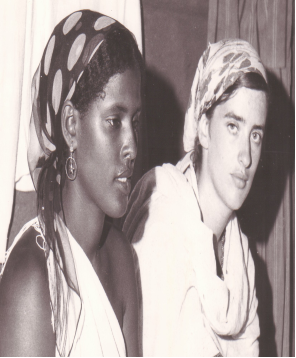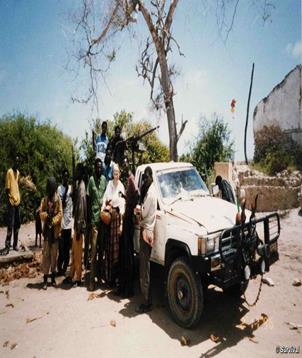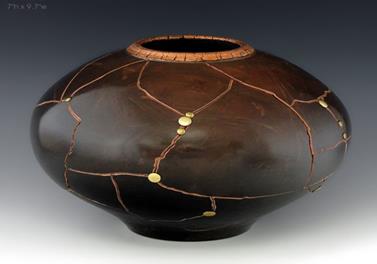Wednesday November 5, 2014

By: Bazi Bussuri Sheikh
“A Sick man has a hundred advisers” is one of the widely used proverbs in Somalia and it is at best relevant to the on-going conflict in the country. Somalia has seen many well-meaning external actors (with overlapping and contradicting agenda) ending up making poor decisions that prolonged the conflict. One of the factors that led to this failure is the adaption of rational approach to the conflict, whilst ignoring the unconscious motives that drive the conflict. For example, by lumping the country’s multiple crises into a single syndrome of simple war over resources in which clans fought to claim land. Such over-emphasis on rationality obscured the social content of the war and the fact that those in conflict are often influenced by unconscious motives and desires for less tangible things. It is important to acknowledge that there is no capacity of sophisticated weapons and the use of force to do anything long term about a conflict that is inherently social. Misreading the social dynamics of the country has isolated the international community and led to the prescription of un-imaginative and template-driven policy response with little relevance to the Somali context.Social facts can only be met or dealt with social facts and the external practitioners in the conflict need to have sound grasp of the social issues and local realities. We need to address wider aspects of the conflict and take particular accounts ofdiscourses of race, in-equality, exclusion and marginality at the same time as leaders negotiate a political deal. We should not silence them or dismiss them as simply marginal to the real projects of state and nation as these are the very stuff of state and nation. There is a lot of independent literature highlighting the social content of the war such as the work carried out by Virginia Luling, a Somali-speaker and expert on clan provenance in Southern Somalia. The external practitioners that rely on instant information to meet deadlines, budgets and committee meetings may view looking at such literature as a waste of time. But literature is in fact the greatest time saver as it would give us access to a range of emotions and events that it would take years, decades and even millennia to try to experience directly. It is the greatest reality simulator as it puts you infinitely more situations one can ever directly witness.


Virginia in Afgooye in 1967, with friend Faaduma Cusmaan Diini and Her visit in 1996, after the fall of the Barre régime
Some of the key aspects Virginia highlighted were the need for social reform in addressing the problems of social exclusion and economic marginalization. Today the Somali youth speak from the point of view of economic marginalization, political injustice, subjugation, exclusion and those who joined Al-Shabaab are driven by local concerns. The Somali civil war itself was partially an outcome of the structural marginalisation of the youth and this problem is still existent and got worse. Al Shabaab leaders were successful in recruiting from the marginalised and highly dissatisfied youths. For young Somalis, in search for avenues for influence in society, self-affirmation and recognition joining the group was attractive and empowering option. However, today many young men are leaving the group and re-marginalisation and not re-integration is the natural outcome awaiting ex-combatants. Re-integration remains a buzzword used by NGOs and politicians, but the social realities are different. Challenging Al-Shabaab should involve recognising and transcending into the social world of the Somali youth. The international community must learn to stand in the shoes of the ordinary Somali people and analytically look at the world the way Somalis do to stop this never-ending mess.
The Way Forward
In order to address these thorny challenges beyond insurgency requires collective effort from Somalis and the external actors in the conflict. The human cost of the continued failure is unbearable and it is the ordinary citizens who are bleeding and paying the price of such myopia. Below is a summary of recommendations:
Genuine Reconciliation between Somalis and the need for Public Apologies
Ø To foster true traditional reconciliation based on face-to-face at Intra-clan (Within the clans), Inter clans (between clans) and national level. This was a missed opportunity on the early stages of the conflict and will likely take long time as the weakened traditional institution of elders will need to be strengthened. But remains the best solution to heal the social wounds of the conflict compared to peace conferences that lack the spirit of mediation and negotiation. As we have seen in Somalia and South Sudan, repressed social worlds have uncanny ability to remake themselves even after it is thought they have been rooted out. Most of the peace deals lacked the face to face talk, documents with full of flaws are prepared elsewhere and presented to leaders in conflict for signature. The external actors in these peace conferences acted as a negotiator and lacked the true role of mediator exercised by the traditional elders that encourage parties to compromise. The traditional approach (Qurac Tree based Approach) has saved Somaliland from a civil war in 1991-2, due to the crucial intervention of the elders.
Ø Acceptance of responsibilities, public apologies made by those who committed atrocities and forgiveness from the victims. This is the only way all parties to the conflict can come to grips with the pain and suffering the Somali conflict had produced. Somalis still feel the pain, hurt, anger, fear and hatred that produced the conflict and its horrors. Without apology and forgiveness, Somali people will remain locked in the value systems that produced the conflict and progress will remain minimal. Those who apologise, an apology must be heartfelt and reflect true remorse of past action and not a chance to gain amnesty (Right actions in the future are the best apologies for bad actions in the past). The victims have to find space in their hearts to forgive even though the pain and suffering will never disappear.
This will be an important step and it may not change the past, but will enlarge the future of Somalia. Somalia is broken and apology and forgiveness can act as super glue to repair its brokenness and this is what made historically broken countries look beautiful again. For example, the Japanese argue that when something's suffered damage and has a history, once repaired it becomes more beautiful. Below repaired Japanese pot shows how something once broken can take on new and added value, adding depth to an item's past.
This however does not mean that history should be ignored. But will be acknowledged as a grave mistake that is now recognized and consider ways of making it never happen again.
The need for Educated Somalis to Change their Attitude
The educated Somali within the country and those in diaspora have been criticised as more of hindrance than a help in Somali conflict. Educated Somali Diasporas are often criticised for suffering from superiority complex and of being self-seeking who exploit Somalia’s difficulties for personal gain and stating “Somali problem is hard enough without them around to make it harder”. This is partially true, but there are also many well-meaning diaspora communities whose contributions to the country are evident. Another argument against current educated Somalis in Somali politics is that they cannot be classified as “Intellectual or Indheergarad" and must be confined to “Educated or Tacliinley”. Therefore, for the educated Somalis to bridge the gap from educated to intellectual needs its own debate, but below is a summary of recommendation:
- Avoid looking issues with Western eyes and reconcile the newly acquired knowledge with the local tradition to create a breakthrough. For example, West adopts individualistic leadership style whereas the Somali Society functions better through approaches that put more emphasis on collective rather than individualistic leadership style. Adopting individualistic approach is what leads to the toxic syndrome of ““Aan wax qalano, mindiyahana kala qarsanno” and this is what the Somali ancestors told us to avoid.
- Recognise that awareness of how to manage conflict is a skill that people develop through everyday activity rather than through reflection and textual analysis. Such knowledge is acquired through intuition and experience and embedded in cultural traditions. The best way to acquire is through the local stories, poetry, proverbs and rituals as these narratives allow you to gain insight into the perspectives and experiences of others and understand the motives behind their behaviour.
- Be humble and exercise humility when dealing with ordinary Somali brothers and sisters. This however does not mean to feel insecure and inadequate, but being a self-giving for the sake of others. This is one important aspect where some brightest Somalis fail and end up floundering in their relationship with others coming off as arrogant and insensitive. For educated to succeed, they need to harmonise head and heart and use emotions intelligently.
Finally, those external actors in the Somali conflict that have continually chosen to place their economic, geostrategic and security interest above their declared human principles need to revisit their policies and use their power differently. It is counterproductive and will be a lesson many governments drunk or sunk on their power will unfortunately learn too late. Lip Service to big words such as “African Solution to African Problem and Democratic principles” carries little weight against the defence of political, economic and geostrategic interests. It is time to critically re-examine those policy choices as the human cost of continued failing is escalating by the day.
Bazi Bussuri Sheikh
[email protected]